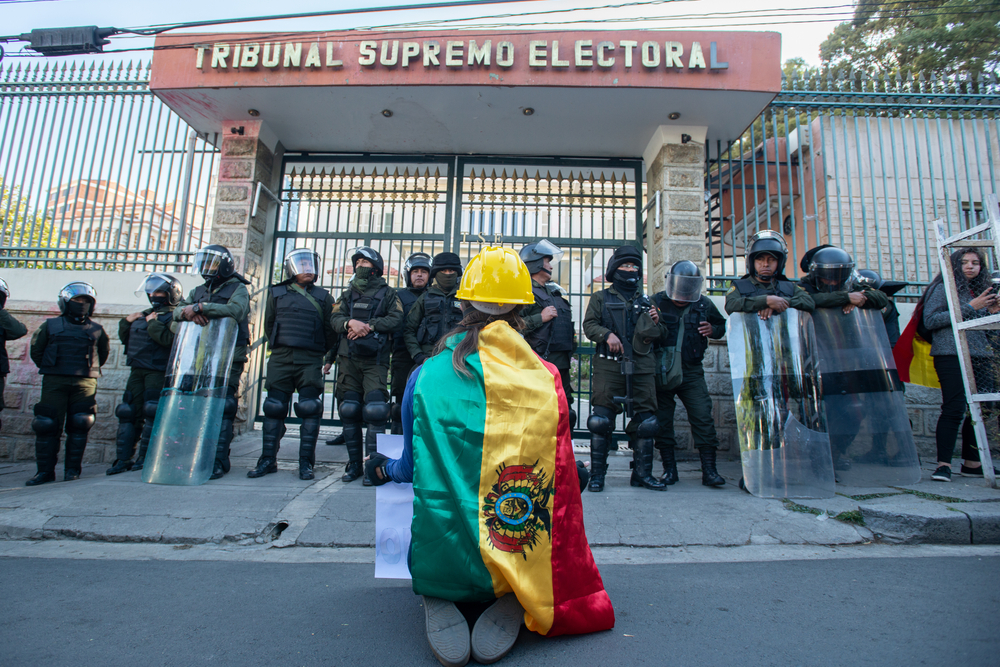In late July, with coronavirus cases spiraling out of control in Bolivia, the country’s electoral officials moved to postpone the 2020 general elections for a third and final time. Now, on Sunday, Bolivians will finally go to the polls with the hope of drawing a line under what has been a catastrophic 12 months for the country’s democracy.
The election date of October 18 is important for multiple reasons: first, it represents relief for the arrival of a vote that many Bolivians feared would never come, but it also lands exactly 365 days after former President Evo Morales was re-elected to a fourth term as head of state, setting off a chain reaction of events that constituted one of the most turbulent years for Bolivia in recent memory.
In the days that followed President Morales’ election in October 2019, Bolivia was the stage of 19 days of civil unrest, with demonstrations and violent riots in several parts of the country, claiming that the vote had been rigged. At least 30 people were killed in clashes between opposing protesters.
The claims of foul play stemmed from the peculiar events of the evening of October 20, as real-time vote counting showed Mr. Morales failing to obtain a large enough advantage to carry the election in the first round. This live count was then surprisingly interrupted at 7:40 pm, with 83 percent of ballots counted. When it reopened, 95 percent of votes had been calculated, and Evo Morales had increased his lead, awarding him the first-round victory.
Under pressure, President Morales asked the Organization of American States (OAS) to conduct an audit on the vote, promising to respect their findings and schedule...


 Search
Search






































